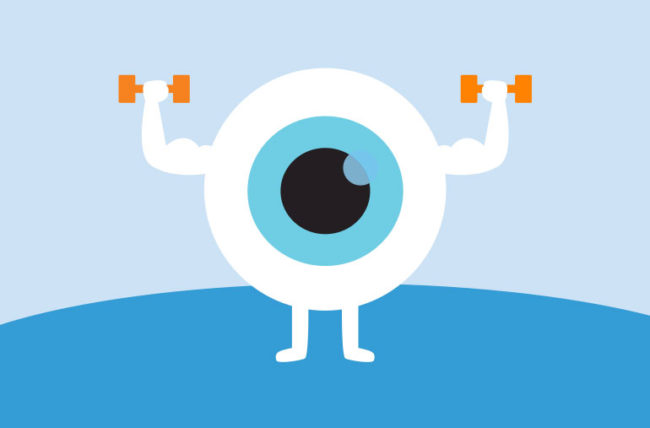While changes in our vision are often beyond our control and it will inevitably deteriorate as we age, there are some things we can do to preserve it. Or, more accurately, not do. Many seemingly innocuous habits may be harming your vision without your knowledge. Swimming in your contacts or lighting up a cigarette are just two of the many everyday activities that can cause dry, itchy eyes, infections, or worse. The issue is that ignoring your eye health can have long-term consequences for your vision.
Here are some things you should stop doing immediately to keep your eyes as healthy as possible.
1. Forgetting to wear sunglasses
Excessive UV exposure can damage the retina, putting you at risk for a number of serious eye conditions such as cataracts or abnormal growths. To avoid damage, it is critical to wear UV-blocking sunglasses while outside. If you wear contacts, selecting a brand with UV protection can provide an extra layer of protection.
2. Using old contact lenses
People, especially one a-days, have a habit of leaving their contact lenses in their eyes for much longer than is recommended. When it comes to keeping your eyes healthy and avoiding vision-blurring infections, sleeping in your contacts, sharing contacts with others, and not changing your contact case every few weeks are all major offenses.
3. Rubbing your eyes
Eye rubbing has been linked to permanent corneal damage, such as keratoconus, a condition in which the cornea thins and bulges outward, and it can also break the fragile vessels around the eye. It's also worth noting that if you feel something in your eye, rubbing it away may cause the debris to become embedded deeper. Instead, try blinking quickly to wash it away with your tears.
4. Using contacts in the shower or pool
Wearing your contacts in any type of water—the ocean, a pool, or even the shower—can introduce bacteria or, in severe cases, an acanthamoeba into the eye. This microorganism lives in fresh water and soil and, while uncommon, can cause a serious infection, including permanent damage or blindness, if it enters your eye.
5. Using expired eye makeup
Using expired eye makeup can cause contact lens irritation or an eye infection. After three months, eye makeup should be discarded. A good rule of thumb is to throw it out when it becomes clumpy.
6. Smoking
In ophthalmology, smoking is linked to an increased risk of cataracts and age-related macular degeneration, both of which affect your vision. Damage to a small spot on your retina that is used for sharp, central vision is caused by age-related macular degeneration. Unfortunately, this is the leading cause of vision loss in people over the age of 50, and smoking doubles your chances of developing the condition. The earlier you start macular degeneration treatment the more chances you’ll save your vision.
7. Staring at a smartphone all-day
When your blink rate slows, so does your tear production rate. Without lubrication, the eyes become dry and tired, resulting in blurry vision. There is mounting evidence that increased screen time may cause irreversible retinal deterioration and is even increasing global rates of nearsightedness.
8. Forgoing safety goggles
Wear those goofy-looking goggles whether you're mowing the lawn or working on your latest home improvement project. You may think it's ridiculous, but many eye injuries happen at home while doing mundane tasks like cleaning the house with harsh chemicals or using a nail gun for your Pinterest-inspired DIY project. This may appear to be an unnecessary precaution, but 2,000 workers in the United States suffer an eye injury on the job every day.
9. Skipping annual eye exam
When it comes to keeping your eyes healthy, skipping your annual eye doctor visit is an obvious, yet significant issue. Even if you think your vision is perfect, there's a chance you're squinting and straining your eyes without even realizing it. The early detection of many eye diseases can make a significant difference in the preservation of your vision.
10. Relying on redness drops
Overuse of "take the red out" drops can have the opposite effect, causing more redness. These drops work by constricting the vessels, but if used excessively, they can cause rebound redness.






Comments